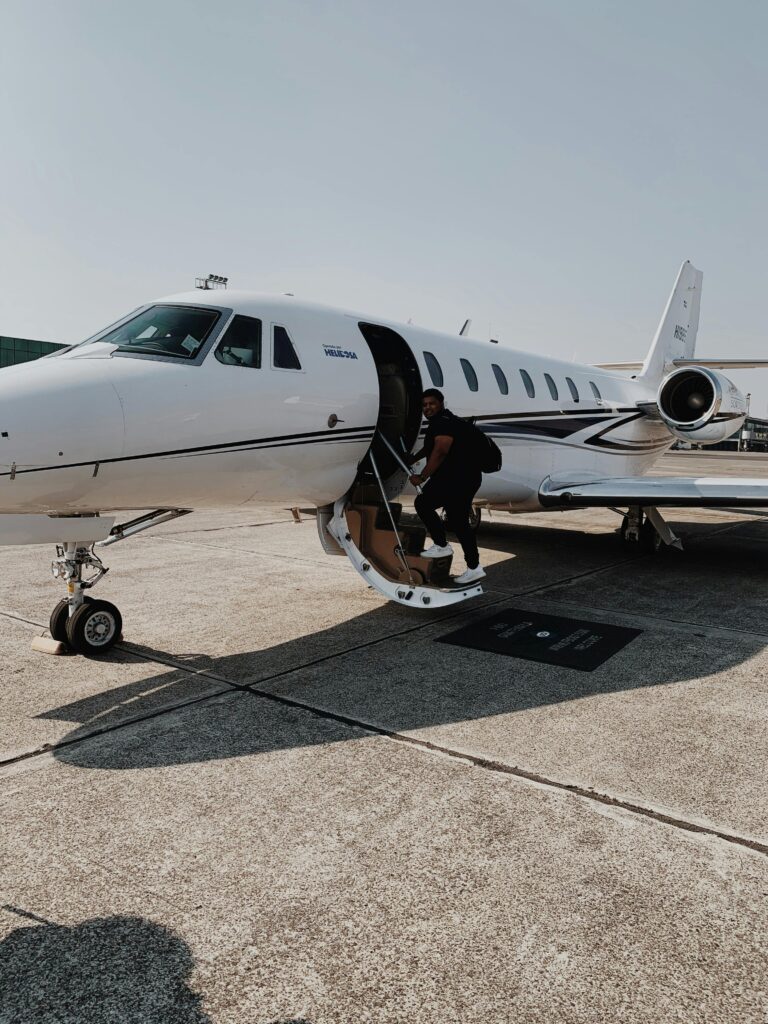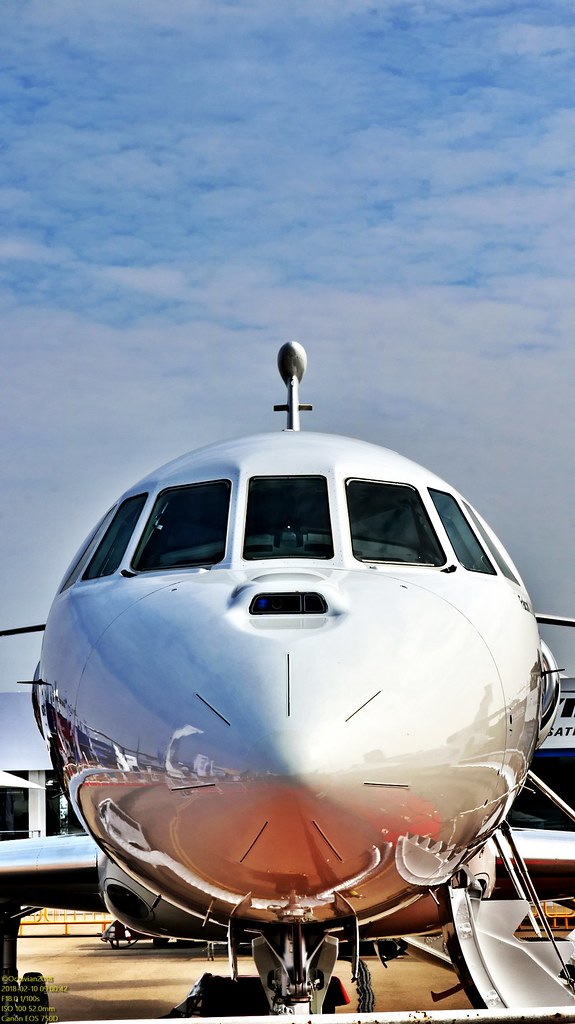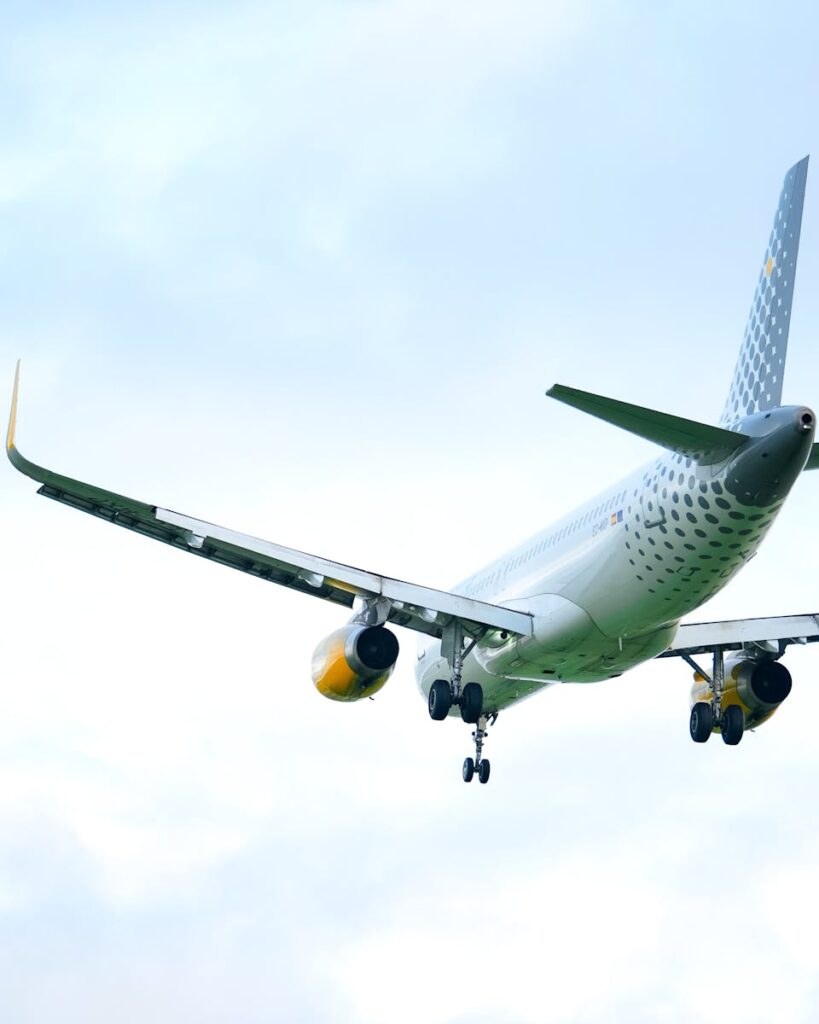Expanding Your Aircraft Fleet: A Complete Guide to Growth and Success
Imagine you're the owner of a successful aviation company, and your fleet is suddenly bursting at the seams with demand. Passengers are clamoring to book flights, your business is growing faster than you can keep up with, and you're looking for ways to expand your aircraft fleet. You’ve got two choices: let the opportunity slip by or rise to the occasion and scale up. But how do you go about expanding your fleet with ease and efficiency, without the stress of unforeseen hurdles? That’s exactly what we’re here to talk about today!
Expanding an aircraft fleet isn’t just about buying new planes—it’s a whole process that involves careful strategy, smart decision-making, and, let’s face it, a bit of aviation know-how. Whether you're choosing the right aircraft or managing the growing pains of your fleet, the goal is simple: growth, efficiency, and profitability. From leasing to buying, from selecting aircraft to streamlining fleet management, we’ll guide you step-by-step through what you need to know to grow your fleet effectively and without the headaches.
Now, let’s pause for a second and think about the big names in aviation—Boeing, Airbus, Bombardier. These companies didn't get to where they are by sitting on their laurels. They understood that expanding their fleets and innovating at the right time was crucial to staying competitive. The same can be said for anyone in the business of aviation, from large commercial airlines to smaller regional operators. Whether you’re looking to grow your fleet for national or international flights, or simply to cater to growing demand, we’ll help you understand how to do it with strategic foresight.
First things first: why should you even consider expanding your fleet in the first place? Well, the benefits are as clear as the sky on a perfect flight day. As your business grows, so does the need for more aircraft to meet increasing customer demands. But it’s not just about more planes—it’s about the right planes. Just like how a pop star carefully selects the right bandmates to bring the best sound to the stage, choosing the right aircraft to add to your fleet will elevate your service and customer experience. Plus, with the right fleet expansion strategy, you can reduce operational costs, increase your range, and improve customer satisfaction—all of which lead to a boost in profitability.
And let’s not forget the financial side of things. Aircraft fleet expansion doesn’t come without its costs, but there are ways to manage the financial load. This is where aircraft leasing companies like Gulfstream, Bombardier, and Embraer come into play, offering solutions that allow you to grow without necessarily needing to purchase new aircraft outright. Leasing allows you to expand your fleet quickly while maintaining flexibility—meaning you won’t be stuck with an aircraft that doesn’t perform the way you hoped.
So, where should you start? Let’s break it down. Whether you're considering aircraft brokers to help you find the perfect deal or you’re ready to take on the full acquisition process, getting the right advice is key. Much like buying a house (but with wings), it’s important to do your homework. This means understanding the different types of aircraft available, the market trends, and how best to finance your new additions. And here’s the kicker: just because an aircraft looks shiny and new doesn’t mean it’s the right fit for your fleet. You need to assess your operational needs, your target market, and your long-term strategy before making a move.
Remember, fleet expansion isn't a sprint—it's a marathon. But with the right strategy, the right team, and the right aircraft manufacturers, you'll be well-equipped to scale your business effectively. Whether you’re adding a new Airbus A320 to your regional airline or considering a Boeing 737 MAX for long-haul flights, understanding the key elements of aircraft fleet expansion will set you up for success. And as we move through this guide, we’ll explore the ins and outs of expanding your fleet, from the advantages of leasing versus buying to fleet management tips that will keep your operations running smoothly.
Stick with us, and let’s get this fleet expansion process off the ground!


Why Expanding Your Aircraft Fleet is Essential for Business Growth
Imagine you're in the cockpit of your growing business, and you're looking out the window at an endless horizon of opportunity. Your current fleet has served you well, but now, the demand is sky-high, and your operations are getting crowded. You're faced with a choice: stick with what you have or expand your aircraft fleet to keep up with the competition. The decision might seem daunting, but the truth is, expanding your fleet isn’t just a good idea—it’s essential for your business growth.
Think about some of the biggest names in aviation—Airbus, Embraer, and Boeing. These titans of the skies didn’t get to where they are by staying stagnant. They’ve grown, evolved, and expanded their fleets to meet the changing demands of their customers. From airlines to private jet services, fleet expansion is the backbone of progress. The need for expansion isn’t just about having more planes—it’s about offering flexibility, cutting costs, and boosting your reputation as an airline or aviation company that can meet demand head-on.
When you expand your fleet, you’re not just increasing your capacity. You’re increasing your brand’s value. Think about it: the more aircraft you have, the more routes you can service, and the more passengers you can accommodate. But there’s more to it than just adding a few more planes. It’s about expanding with intention. This means considering the right aircraft for your operations—whether that’s a Boeing 737 MAX for long-haul flights or a Bombardier Global 7500 for private jet services. The right additions to your fleet can elevate your business in ways you may not have imagined.
Let’s break it down: the aviation industry is constantly shifting, and demand can fluctuate faster than you can say “turbulence.” That’s where fleet expansion comes in. By investing in more aircraft, you’re setting yourself up for flexibility, which is crucial in the fast-paced world of aviation. Imagine running a flight schedule and constantly having to turn down customers because your fleet is fully booked. Expanding your fleet means you can say “yes” more often, take on new contracts, and meet customer demands without breaking a sweat. You’ll also avoid the dreaded “overbooking” scenario—something that airlines work hard to avoid.
But beyond the customer satisfaction and increased revenue, there’s the matter of cost efficiency. When your business grows, your operational costs go up too. However, expanding your fleet strategically can help mitigate these costs. Leasing aircraft, for example, can be an attractive option for businesses that want to scale quickly without taking on the full financial burden of purchasing new planes outright. Companies like Gulfstream and Bombardier offer leasing options that give you the flexibility to grow your fleet without locking up your capital. The idea here is that you’re not just paying for a plane—you’re paying for the ability to keep your business nimble and ready to respond to whatever the market throws your way.
Fleet expansion also opens the door to operational efficiency. When you have a larger, more diverse fleet, you’re not relying on a few aircraft to do all the heavy lifting. Instead, you can diversify your offerings. For example, smaller, more fuel-efficient aircraft might be better suited for regional flights, while larger planes with more passenger capacity can cater to longer routes. With a well-thought-out fleet expansion strategy, you can match the right aircraft to the right job. This reduces fuel costs, maintenance costs, and even the time your planes spend on the ground.
But here’s where things get really interesting—expanding your fleet also opens up new revenue streams. Imagine having the ability to offer both commercial flights and private charters, or offering more luxurious, high-end services to attract a different demographic. Your fleet can evolve to meet the needs of your target market, giving you a competitive edge that your competitors might not have. Adding a Gulfstream G650 to your fleet can open doors to a whole new segment of high-net-worth individuals looking for top-tier private travel options. And that’s not just revenue growth—it’s a shift in the way your business operates, allowing you to tap into new income sources.
The reality is, expanding your aircraft fleet is more than just a logistical decision; it’s a strategic move that can fuel long-term success. By offering a wider range of aircraft, you can meet changing demand, stay ahead of industry trends, and solidify your place in a competitive market. Whether you’re an up-and-coming regional airline or a well-established carrier, fleet expansion is the key to scaling your business, increasing customer satisfaction, and improving your bottom line. And let’s face it, who doesn’t want to soar to new heights?
When you’re thinking about expanding, remember that you’re not alone. Many companies have made the leap and seen massive improvements in their operations. Whether you’re reaching out to aircraft brokers to find the best deals or working with manufacturers like Boeing or Airbus to secure the perfect models for your needs, you’ve got resources and options at your fingertips. The industry is built on collaboration, and your fleet expansion journey should reflect that same sense of teamwork and vision.
In the end, expanding your aircraft fleet isn’t just about adding planes—it’s about positioning your business for growth, adaptability, and success. It’s the difference between being stuck in a holding pattern and cruising smoothly to your next big opportunity. So, when you’re ready to take the next step, you’ll know exactly why expanding your fleet is the best move you can make for your business.
Conclusion: Ready to Take Off with Your Fleet Expansion?
So, there you have it—the essentials of why expanding your aircraft fleet is not just a luxury, but a necessity for any aviation business that wants to soar to new heights. Whether you're a private operator looking to grow or an established airline ready to scale, the key is in strategic expansion. The benefits are clear: more flexibility, increased efficiency, a stronger bottom line, and the ability to meet growing customer demand. It’s not just about adding more planes, it’s about adding the right planes, at the right time, with the right strategy.
As we’ve seen, there’s no one-size-fits-all approach to fleet expansion. Whether you choose to lease aircraft from top manufacturers like Boeing or Airbus or work with expert aircraft brokers to find the perfect additions, it’s about making smart decisions that align with your business needs. Flexibility in financing, the right aircraft for your routes, and an efficient management strategy are all parts of the equation that will help your business grow, thrive, and stand out in the competitive skies of aviation.
Ready to jump into the cockpit and take control of your fleet expansion? It’s time to elevate your business to new altitudes. And as we always say—never let the turbulence of growth scare you; embrace it and make your mark in the aviation industry!
Frequently Asked Questions
What are the benefits of expanding my aircraft fleet?
Expanding your fleet allows you to accommodate increasing demand, reduce operational costs, and diversify your service offerings. With more aircraft, you can take on new routes, serve a larger customer base, and increase your overall profitability. Plus, expanding your fleet strategically with the right aircraft can help optimize fuel consumption, maintenance costs, and crew management.
How do I decide whether to lease or buy aircraft for my fleet expansion?
Leasing aircraft offers flexibility and lower upfront costs, making it an ideal option if you need to scale quickly or if you’re not sure which models will perform best for your operations. On the other hand, buying aircraft means full ownership, potentially lower long-term costs, and the freedom to customize. The decision depends on your financial situation, business goals, and the type of aircraft you need.
How can I manage a larger fleet efficiently?
Effective fleet management requires a robust strategy, including proper maintenance schedules, crew coordination, and data-driven decision-making. Software solutions that track fleet performance, fuel consumption, and scheduling can help streamline operations. Additionally, working with an experienced fleet management team or consultant can help you stay ahead of potential challenges as your fleet grows.
What are the best aircraft for expanding my fleet?
The best aircraft for your fleet expansion depends on your business model. If you're focused on regional flights, smaller aircraft like the Embraer E175 or Bombardier CRJ700 might be ideal. For longer routes, you might consider larger aircraft like the Boeing 787 or Airbus A320 to cater to a larger passenger capacity. Choose based on the routes you want to serve, passenger demand, and operational efficiency.
How much does it cost to expand an aircraft fleet?
The cost of expanding your fleet depends on whether you choose to lease or buy aircraft and the specific models you’re interested in. Leasing offers lower initial costs, but buying gives you long-term ownership. Other factors like maintenance, insurance, and training also play a role in overall expenses. It’s important to create a detailed budget and financing plan before making any purchases or leasing agreements.
Additional FAQs
How long does it take to expand my aircraft fleet?
The timeline for fleet expansion can vary. Leasing aircraft can be done relatively quickly, sometimes within a few months. However, buying aircraft typically takes longer due to the process of securing financing, customizing planes, and waiting for delivery. Working with manufacturers like Airbus or Embraer might speed things up if you have a pre-existing relationship or specific aircraft already in mind.
Should I work with an aircraft broker when expanding my fleet?
Yes, working with an aircraft broker can help streamline the process of finding the right aircraft for your needs. Brokers have extensive industry knowledge, access to a wide range of aircraft options, and can often help negotiate better prices. They can also save you time and effort in locating the best deals, especially if you're looking for specific models or need assistance with financing.
What factors should I consider when choosing new aircraft for my fleet?
When selecting aircraft for your fleet, consider factors like fuel efficiency, range, passenger capacity, and maintenance costs. Additionally, think about the routes you plan to serve and the type of passengers you’ll be accommodating. Are you serving long-haul international routes or shorter regional flights? The right aircraft will align with your operational needs and long-term goals.
How can fleet expansion help my business stay competitive?
Expanding your fleet can help your business stay competitive by increasing your ability to serve more customers, improve operational efficiency, and offer more diverse services. With the right fleet, you can expand into new markets, offer premium services, and meet the growing demand for air travel. The key is ensuring that your fleet meets the needs of your customers and helps you stay ahead of industry trends.
Are there any tax advantages to expanding my fleet?
Yes, depending on your location and whether you lease or purchase aircraft, there may be tax benefits to fleet expansion. For example, purchasing aircraft might offer depreciation advantages, while leasing can provide deductions for rental payments. It’s best to consult with an aviation tax expert to understand the specific tax advantages available in your area and how they can impact your fleet expansion strategy.

